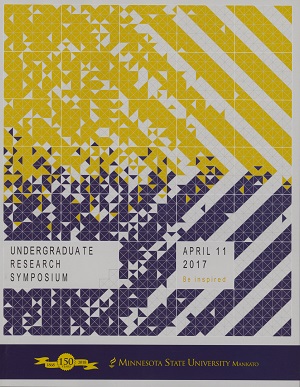Assessing Knowledge of Alzheimer's Disease in Younger and Older Adults
Location
CSU Ballroom
Start Date
11-4-2017 2:00 PM
End Date
11-4-2017 3:30 PM
Student's Major
Psychology
Student's College
Social and Behavioral Sciences
Mentor's Name
Jeffrey Buchanan
Mentor's Department
Psychology
Mentor's College
Social and Behavioral Sciences
Description
In this study, younger and older adults completed the Alzheimer’s Disease Knowledge Scale (ADKS) in order to measure their knowledge of Alzheimer’s disease (AD). AD is the most common type of dementia that affects millions of people in the United States. Much research has focused on identifying potential causes of AD, how to best support family caregivers, and methods for preventing this disease. Due to the continuous research and media attention of AD, it is not surprising that many misconceptions have come to attention. It is important that these myths are addressed because misconceptions about the disease can lead to ineffective care for an individual with AD. In the current study, it was predicted that older adults would adhere to fewer myths than younger adults because they are likely to have more exposure to the disease. Data collection is complete with the college student sample, but is ongoing with the older adult sample. Therefore, data collection and analysis is pending and will be complete in March 2017. Implications of the results in terms of the possible need for improved education about Alzheimer's disease will be discussed.
Assessing Knowledge of Alzheimer's Disease in Younger and Older Adults
CSU Ballroom
In this study, younger and older adults completed the Alzheimer’s Disease Knowledge Scale (ADKS) in order to measure their knowledge of Alzheimer’s disease (AD). AD is the most common type of dementia that affects millions of people in the United States. Much research has focused on identifying potential causes of AD, how to best support family caregivers, and methods for preventing this disease. Due to the continuous research and media attention of AD, it is not surprising that many misconceptions have come to attention. It is important that these myths are addressed because misconceptions about the disease can lead to ineffective care for an individual with AD. In the current study, it was predicted that older adults would adhere to fewer myths than younger adults because they are likely to have more exposure to the disease. Data collection is complete with the college student sample, but is ongoing with the older adult sample. Therefore, data collection and analysis is pending and will be complete in March 2017. Implications of the results in terms of the possible need for improved education about Alzheimer's disease will be discussed.
Recommended Citation
Linderholm, Abbey. "Assessing Knowledge of Alzheimer's Disease in Younger and Older Adults." Undergraduate Research Symposium, Mankato, MN, April 11, 2017.
https://cornerstone.lib.mnsu.edu/urs/2017/poster-session-B/24




